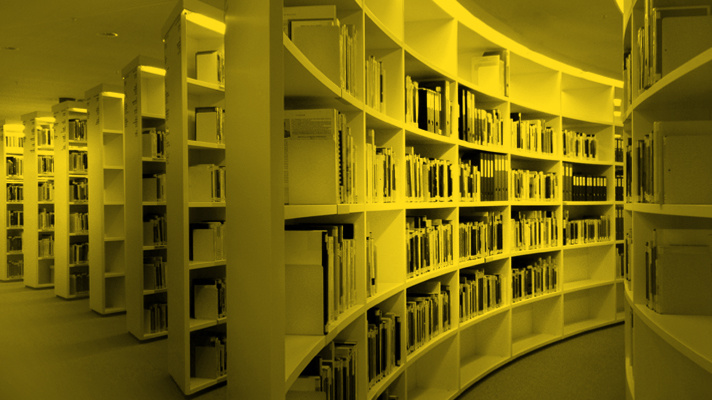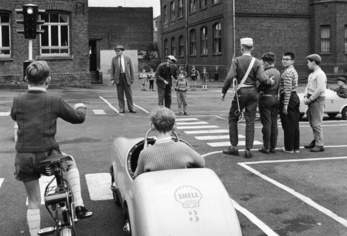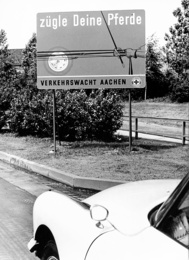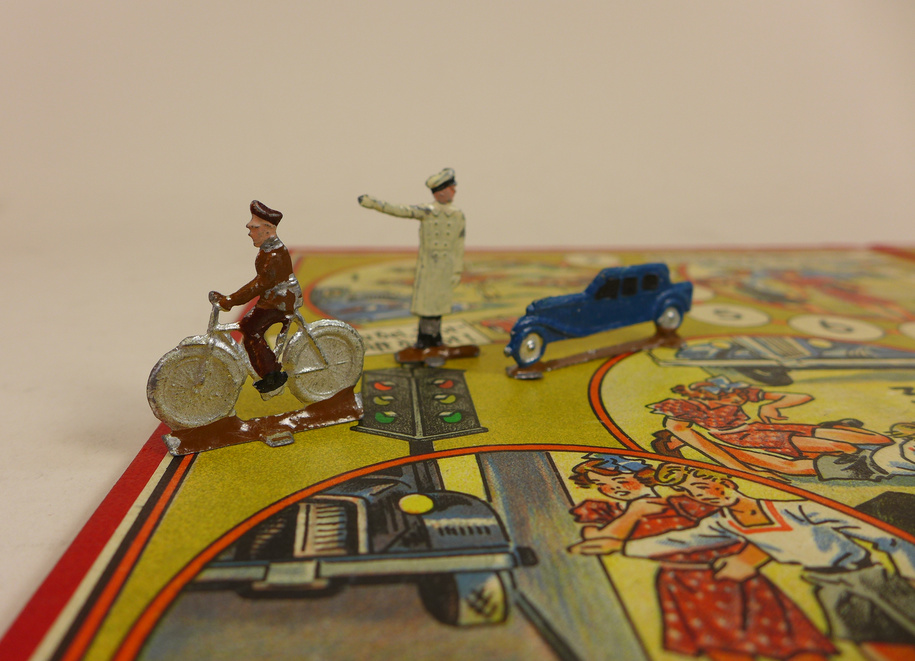Safety as a seventh sense. Traffic education in (West) Germany 1900–1992
(translated project title)
“Eyes peeled when in traffic”, a German children’s song would have it, and “Ease off the gas pedal”, cry billboards along the autobahn. To this day, traffic education measures accompany us almost from the cradle in order to enable us to capably counter the uncertainties of ever denser road traffic. So what capabilities are actually required? In what way do the measures seek to motivate people to behave in a manner appropriate to the traffic? And what do these efforts say about a society that is becoming ever more mobile?
Like the increasing and ever faster pace of personal transport in the 20th century, the related development in traffic education has usually and astonishingly been simply accepted rather than viewed critically – even though from an early date there has been a realization that human beings are the central factor in traffic safety.
In a study that will undertake a chronological cross section of almost an entire century of mass motorization (1900-1992), historian Dr Kai Nowak focuses on traffic education in (West) Germany and the historical changes it has undergone. He believes the key question is how, in a complex society, collective safety was suggested to exist and what this in turn says about its self-regulative processes as well as the underlying images of people and notions of order.
Starting with a whole raft of archival and published source material, he initially maps the players active in the field of traffic education in Germany. Then, using the methods of discourse analysis and cultural history, a description is given of how traffic education became institutionalized, differentiated, and then changed over the course of time. Thus, not only state institutions such as the police played a part, but also associations such as automobile clubs, and players in the fields of education, business, and science all intervened in the social discourses on safety.
On the basis of this ensemble of actors, which covers almost all functional areas of society, Dr Nowak intends to show how traffic-safety expertise was created and how it impacted on society. The evaluation of different sets of materials (from files in the ministry through to the TV evergreen “Der 7. Sinn”) promises to cast new light on the specific didactics of safety and elaborate the path from concept to political program and pedagogic practice.
The study will focus not least on the media of traffic education and examine the teaching goals, methods, and strategies – which have not been exhausted in conveying knowledge. They attempt to anchor “correct” behaviour in the subconscious so that it can be accessed as a matter of routine. To achieve this, recurrent key slogans and rules of thumb come into play (“Keep your distance – ½ your speed in meters”), not to mention religious and ethical justifications, soft and shock-based teaching, mantra-like appeals and etiquette (“Be a cavalier of the road”), virtual close-up control (“Listen to your wife – drive safely”) and the threat of sanctions. Dr Nowak takes as his key sources education media and campaign materials: from primers and manuals to traffic games and children’s books through to slogans and autobahn billboard posters.
The consideration of changes over time and continuities in the various processes of negotiating what good traffic pedagogy should be enable Dr Nowak to put his finger on a fundamental paradox in traffic education: On the one hand, it designates road traffic as a safety problem in order to emphasize the need to behave in a manner that heeds the traffic and, on the other, is a central precondition for suggesting that things are sufficiently safe.
The research project is expected to culminate in a monograph in which traffic education is evaluated for the first time across the political caesuras of the 20th century in terms of a social and cultural history of disciplining and self-regulation, of safety and risk.





